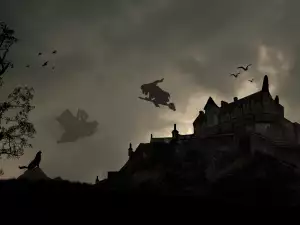Hypnagogia is a method used to bring about hallucinations in the transitional phase between wakefulness and falling asleep. According to psychiatrists, the state of hypnagogia is not a disorder and happens to about 30 to 40% of people.
In a state of hypnagogia, an individual can see all kinds of beings, feel a presence, have the feeling that they're falling from a high altitude, hear strange sounds, see shadows and have the feeling that they can't take a breath.
The 1st descriptions of this strange phase between dreams and reality were found in the works of Aristotle, Iamblichus, Girolamo Cardano, Simon Forman and Emanuel Swedenborg.
During the Romantic era, the interest toward hypnagogia grew higher, with a significant number of artists and scientists bringing it about, since it turned out to be a huge source of ideas for their work.
Hypnagogia provides a great boost and can awaken the creative side in a person. This method allows us to reach the deep layers of our subconscious, bringing out the pure form of our imagination.
By digging into our subconscious, we fall into a state of light hypnosis, characteristic of the phase before deep sleep. Then we drift deeper into sleep and fall into the so-called REM sleep or the state in which dreams appear.

At that point we find ourselves in the depths of our subconscious. If a person were to wake up in this phase of sleep, they can tap into their creativity and desire for creativity.
To do this you need to find a comfortable and quiet place to sleep, and have writing or drawing materials nearby. Lay down in a comfortable position, placing the elbow of one of your arms on the edge of the bed, so that your palm faces up - in the form of the letter "V".
Then relax and focus on one problem. When you start to drift off, your arm will relax and fall off the edge, thereby waking you.
At that exact moment you must write down all the ideas that pop into your head.
This method has been used by Salvador Dali, Thomas Edison, Albert Einstein, Richard Wagner, Ray Bradbury, Charles Dickens, Lev Tolstoy, Mark Twain and Edgar Allen Poe.














